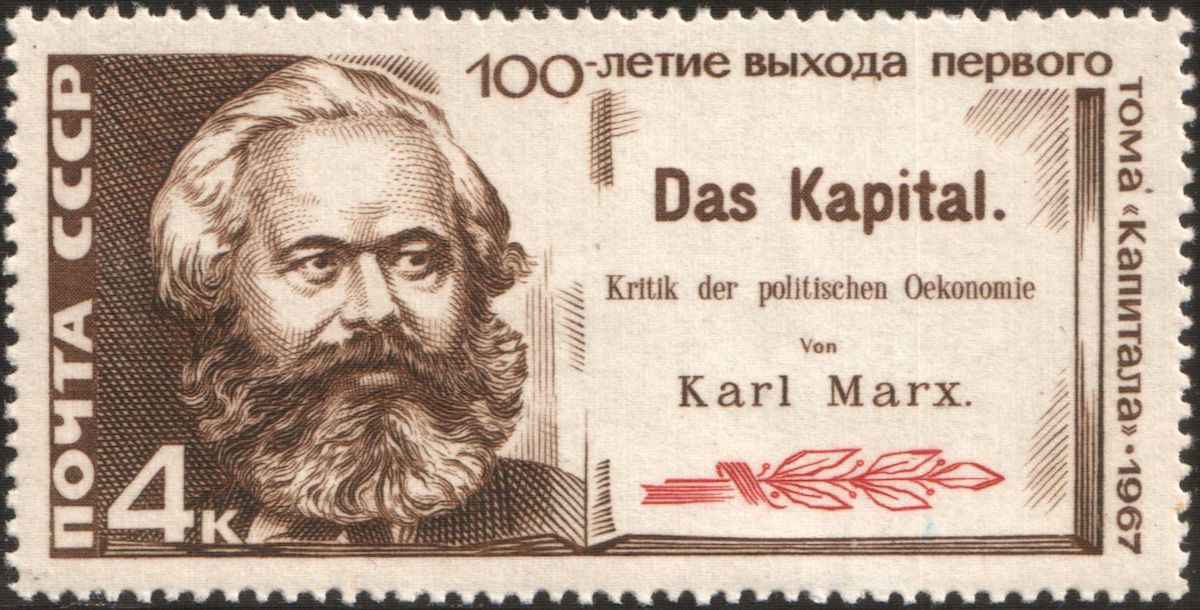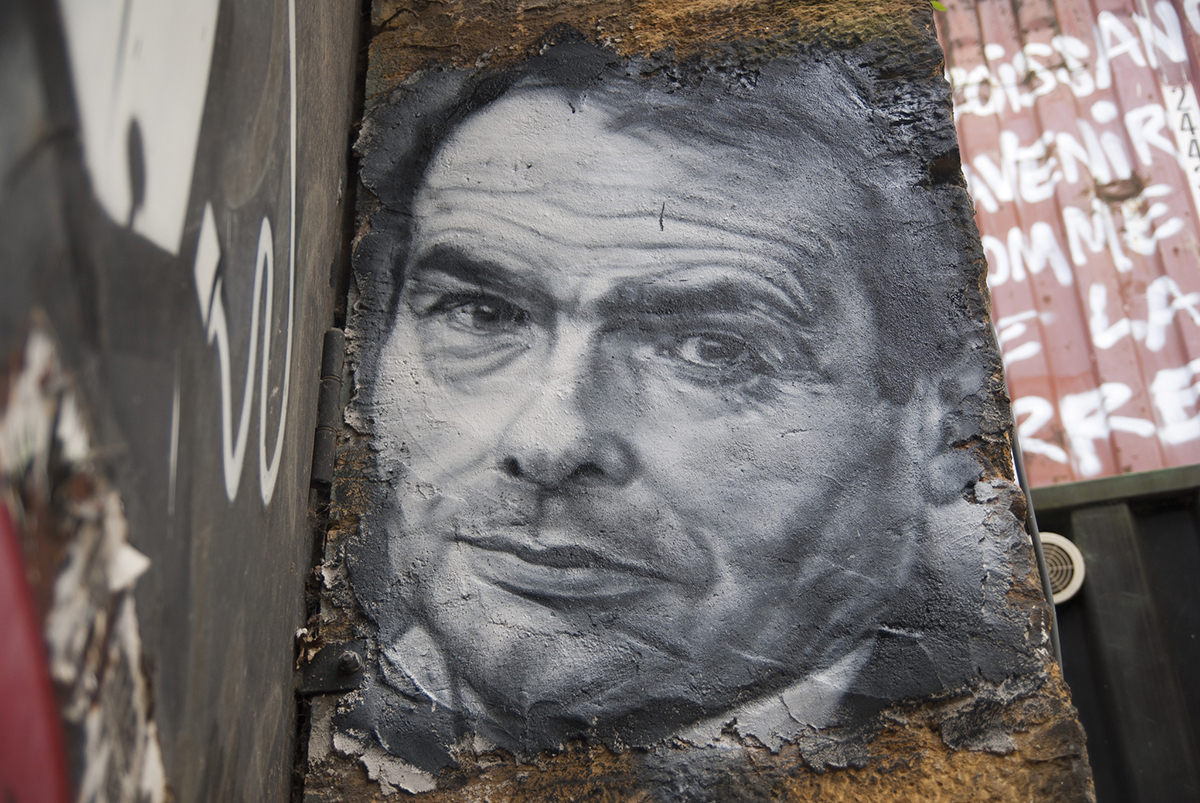Must Reads
What My Days as a Marxist Taught Me About Modern Political Cults
Parsing these texts becomes an obsession for generations of true believers. The rapture, that bloody apocalyptic end of days, is replaced with revolution.

There was a time when Das Kapital was my bible. It sits on one of the bookshelves that line my living room, alongside other artifacts from my youthful foray into Marxism. The front cover is worn, the pages slightly frayed. For years, I returned to those words, chewing slow on arguments unspooled in archaic prose about labour-power and the appropriation of surplus-value. I was certain I’d found the key to understanding the modern world; a truth so pure it would end the oppression of man by man.
I’ve thought often about that sense of certainty in the years since. I turn the memories over in my mind, amazed at my erstwhile fervency. The sense that I, a teenager and later a young man, had found the answer to what ails the world in a text of political economy published in 1867….That hubris, in retrospect, is shocking.
Although I would have protested the idea then, it’s become clear to me that my former sense of conviction was a secularized form of faith. My pretense to holding an atheistic worldview coldly ruled by reason was just that: a pretense. Marx may have been correct that religion is the opiate of the masses, but he failed to envision what his materialist conception of history would become to his followers in a secularized world. On an unconscious level, my ideology was fundamentally theistic, my nominal rejection of the supernatural notwithstanding.
The link between religion and Marxism (or, more recently, identity politics) has been remarked upon by many writers, including here in Quillette. Nevertheless, I continue to be struck by how many intelligent and empathetic young people, often on the tail end of a gradual, multi-generational rejection of God, become congregants of the radical left.
I’ll use Christianity and Marxism to illustrate the point, but it holds for other religions and ideologies as well. Jesus steps onto the world stage to bring forth the word of God, before sacrificing himself for the sins of mankind. Marx rises from obscurity after revealing the unfolding logic of history and—by extension—the end point in the social organization of man. The apostles, the closest followers of Christ, dedicate themselves to interpreting and spreading his word. The post-Marx Marxists do the same, although the most revered figures vary depending on geography and personal preference. For some, it’s butchers such as Stalin and Mao; for me, it was Lenin and Trotsky, the architects of the October Revolution of 1917. Perhaps most on the nose: The Czech-Austrian communist theoretician Karl Kautsky, the most well-known follower of Marx and Engels in the immediate aftermath of their deaths, was affectionately called “the pope of Marxism.”
The Old Testament is replaced by Das Kapital or The Communist Manifesto, and the New Testament by Trotsky’s Permanent Revolution, or Mao’s On Guerilla Warfare, or Lenin’s April Theses. Parsing these texts becomes an obsession for generations of true believers. The rapture, that bloody apocalyptic end of days, is replaced with revolution. And like fundamentalist Christians, many Marxists look forward to it, including the death and terror it would bring. Finally, communism marks the manifestation of heaven on earth. Despite the pretension to atheism, Marxism provides a secularized Christian eschatology, rooted in an unconscious Manichaean millenarianism.

The late British-American essayist Christopher Hitchens was a reformed Marxist. In his 2007 book, God is Not Great: How Religion Poisons Everything, he likened his youthful political convictions to religious faith thusly:
When I was a Marxist, I did not hold my opinions as a matter of faith, but I did have the conviction that a sort of unified field theory might have been discovered. The concept of historical and dialectical materialism was not an absolute, and it did not have any supernatural element, but it did have its messianic element in the idea that an ultimate moment might arrive, and it most certainly had its martyrs and saints and doctrinaires and (after a while) its mutually excommunicating rival papacies. It also had its schisms and inquisitions and heresy hunts. I was a member of a dissident sect, which admired Rosa Luxemburg and Leon Trotsky, and I can say definitely that we also had our prophets…Those of us who had a sort of rational alternative for religion had reached a terminus which was comparably dogmatic.
As I can attest, there is a certain comfort that accompanies this mindset, which I suspect is similar to what religious true believers feel. It also gives one a sense of purpose, for I was a missionary on the hunt for converts. There were times I travelled hundreds of kilometres to participate in demonstrations that had little, if any, connection to my life, except for the hope that one day, perhaps even after my death, my efforts would help usher in the prophesized utopia. There were moments my comrades and I would even acknowledge and poke fun at this aspect of our activism: During a campaign that involved canvassing poor neighbourhoods in a major U.S. city, knocking on door after door, we began referring to ourselves as the Jehovah’s Witnesses of the revolution.
One of the most evident problems with faith-based (or ersatz-faith-based) worldviews is that they arm adherents with a sense of certitude that is corrosive to discourse. It leaves them utterly certain that they occupy the moral high ground on every issue, and so the facts must be on their side. And if the facts prove uncooperative, they are either ignored, distorted, or simply erased. This is something the much-maligned French philosopher Michel Foucault understood quite well, notwithstanding all of the criticism to which he has been subject:
The polemicist…proceeds encased in privileges that he possesses in advance and will never agree to question. On principle, he possesses rights authorizing him to wage war and making that struggle a just undertaking; the person he confronts is not a partner in search for the truth, but an adversary, an enemy who is wrong, who is harmful, and whose very existence constitutes a threat. For him, then, the game consists not of recognizing this person as a subject having the right to speak, but of abolishing him as interlocutor from any possible dialogue; and his final objective will be not to come as close as possible to a difficult truth, but to bring about the triumph of the just cause he has been manifestly upholding from the beginning.
There’s an episode from my own past that illustrates this general principle nicely. I’m young and arguing with my stepfather about politics. In Canada, where we live, our nation’s treatment of Indigenous peoples is a shameful stain on our history. The Indigenous population remains marginalized, their communities being often poor and isolated. We were discussing what needed to be done to remedy this. My stepfather argued that there is only so much the government can do to improve the lot of any group, and that states should create the conditions in which people can lift themselves up, before getting out of the way entirely. It’s a perfectly reasonable position, one I’m sympathetic to now. But at the time, I was having none of it. Not only was he on the wrong side of the issue, he was on the wrong side of history. Frustrated and angry after a lengthy, emotional exchange, I called him a racist, practically spitting the word at him. In fact, my stepfather is nothing of the sort. I’ve never heard him utter an unkind word, let alone one that betrayed an attitude of bigotry. This wasn’t a case of him denying historical wrongs. He simply disagreed what steps could best be taken to address a problem we both recognized as real. Thinking back on the encounter still makes me feel ashamed.
For many of us, such one-off encounters have become a regular—sometimes even daily—form of “debate,” especially on social media, whose dynamics encourage rhetorical stakes-raising. The idea that two people acting in good faith can look at the same set of facts and reach different conclusions has gone from unspoken assumption to exotic claim. People aren’t just wrong on this or that issue: They’re morally flawed. They don’t have bad politics: They’re bad people. On Twitter, you actually find college professors and politicians using Nazi analogies to attack people who disagree with them on mundane points of policy.
My job as a journalist requires me to spend a fair amount of time on Twitter, which I find draining and toxic. My feed is a curated list of North American politicos and reporters, which gives me a front row seat on the outrage mobs. I’ve concluded that many of the most active and influential culture warriors—the ones in the front pews praying the loudest, and the most ecstatically—are mentally unwell.
The Covington Catholic student controversy at the Lincoln Memorial offered an extreme example—perhaps even a wake-up call. People are no longer seen as individuals, but rather stand-ins for group identity. Nick Sandmann, the 16-year-old boy at the centre of things, was depicted as the very distillation of white supremacist, patriarchal evil. Making a single individual, let alone a child, the proxy for centuries of oppression isn’t social justice. It’s insanity. One was reminded of a Christian mob in ancient times that had found a heretic to sacrifice—or a similar mob in modern Pakistan that had seized some poor sod accused of mocking the Prophet Mohammed or desecrating a Koran.
One of the best descriptions of the ideologically possessed mind comes to us from Hungarian-British author Arthur Koestler (1905-1983). In The God that Failed, a 1949 collection of essays written by ex-communists detailing their conversion to, and disillusionment from, Marxism, Koestler wrote:
Something had clicked in my brain, which shook me like a mental explosion. To say that one had ‘seen the light’ is a poor description of the mental rapture which only the convert knows…The new light seems to pour from all directions across the skull; the whole universe falls into a pattern like the stray pieces of a jigsaw puzzle assembled by magic at one stroke. There is now an answer to every question, doubts and conflicts are a matter of the tortured past.
What is needed in the face of such ideological certainty is a phase shift to a more modest intellectual approach. When I look back on my time as a Marxist, I’m struck by how little doubt I experienced. The world is an unbelievably complex place composed of infinite shades of grey. And anyone who thinks they have it all figured out should be mistrusted on principle.
These days, when I see that copy of Das Kapital on my shelf, my mind turns not to its author, but to Socrates. For during my years as a Marxist, I lost touch with the philosopher’s greatest insight: “I neither know nor think I know.” Socrates was the smartest man in Athens because he recognized his ignorance. It is perhaps the oldest lesson that philosophy has to teach us, yet so many of us have forgotten it.
This is not a call for epistemological nihilism. I am not advocating a bottomless appeal to subjectivity that destroys the very idea of truth. Meaning and knowledge, not just aesthetic preference, are possible; and it is incumbent upon us to strive for them. But we must also remember that people of good faith can be divided by politics and religion. Your favorite pundit or political theorist is just that—a pundit or political theorist, not a Moses, Mohammed or Jesus. And there is no one ideology that will lead us to an imagined promised land.






